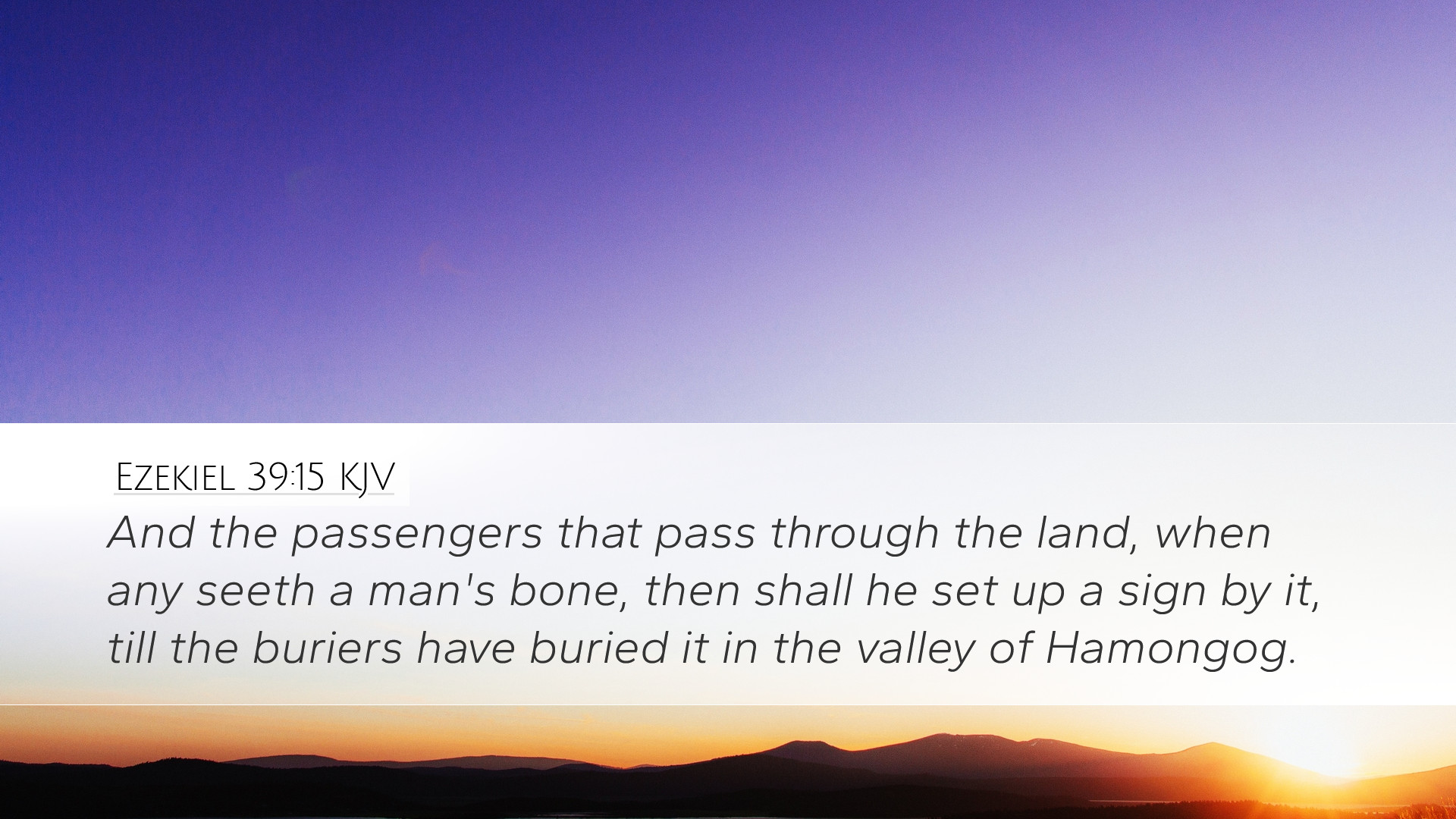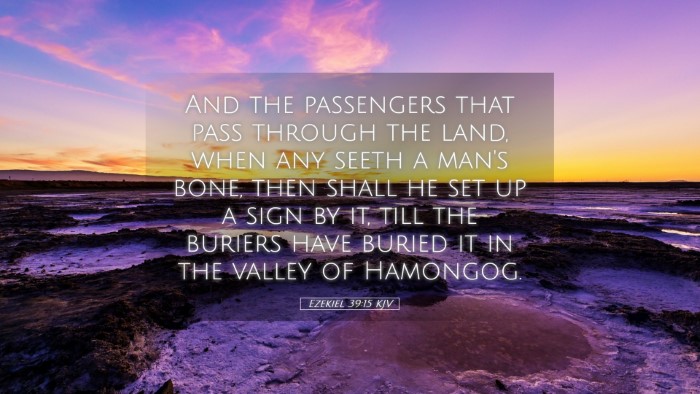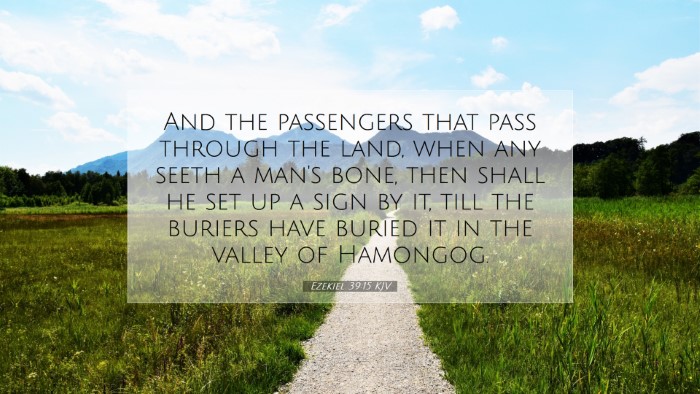Ezekiel 39:15 Commentary
Bible Verse: Ezekiel 39:15 - "And the cities that were inhabited shall be crowded with people, and the fruit of their cities shall be multiplied." (KJV)
Overview
Ezekiel 39:15 is a pivotal verse that encapsulates the themes of restoration and divine judgment in the prophetic narrative of Ezekiel. The chapter speaks to the aftermath of God’s judgment upon Gog, representing the forces that oppose God’s people. This commentary draws insights from various public domain sources, enriching our understanding of the scripture.
Contextual Background
The Book of Ezekiel addresses a community in exile, offering prophecies of both judgment and hope. Ezekiel, a priest and prophet, delivers messages primarily centered on the themes of repentance, restoration, and the sovereignty of God. The context of Ezekiel 39 is God’s promise of annihilation to Gog and Magog, and the restoration of Israel thereafter. This verse specifically addresses the future prosperity of the land after such divine intervention.
Insights from Commentaries
1. Matthew Henry's Commentary
Matthew Henry emphasizes the fulfillment of God's promises surrounding the return of His people to their homeland following a period of great turmoil and conflict. He notes that the phrase "the cities that were inhabited shall be crowded with people" signifies the joyous re-inhabitance and flourishing of Israel post-exile. Henry suggests that the abundant population is a testament to God's mercy and faithfulness, reiterating the notion that God will restore what has been broken and lost.
2. Albert Barnes' Notes on the Bible
Albert Barnes expounds on the vision of a restored Israel, highlighting the significance of "the fruit of their cities shall be multiplied." Barnes interprets this as a metaphor for both spiritual and material prosperity. The revival of the land symbolizes the rejuvenation of God’s covenant relationship with Israel. He draws attention to the fact that in the aftermath of judgment, God provides abundantly, illustrating His willingness to bless His people despite their previous disobedience.
3. Adam Clarke's Commentary
Adam Clarke presents a detailed analysis of the verse, focusing on the implication of "the cities that were inhabited" in relation to prophecy. He indicates that this restoration represents not just a physical regrowth but also a spiritual revival among the people. Clarke elaborates on the Hebrew words for "crowded" and "cities," explaining that they denote a significant reversal of Israel’s desolation. The promise of fruitfulness in their cities reflects a return to peace and stability, fostering a society that thrives under God’s providential care.
Theological Implications
These commentaries converge on the theological assertion that God is relentless in His commitment to restore His covenant people. Ezekiel 39:15 serves as an affirmation of hope for pastors and theologians alike, reminding them of the transformative power of divine grace. The verse illustrates how God’s plans transcend human failure and invite believers into a renewed relationship marked by abundance and joy.
Application for Today
For contemporary application, this verse speaks profoundly to the need for hope amidst desolation. In times of despair, it serves as a reminder that God's restoration is always possible. The promise of crowded cities and multiplied fruits can inspire congregations to trust in God’s provision and to work toward community revitalization. Pastors can use this verse to encourage their members to envision a future of healing and growth in their personal lives, as well as within their communities.
Conclusion
Ezekiel 39:15 encapsulates the transformative nature of God's promises of restoration and abundance. Drawing from the insights of respected commentators, we see a mosaic of meanings that inspire faith, encourage resilience, and herald hope. As we reflect on this passage, may we embrace the truth that in God’s economy, desolation can end in great blessing.
References
- Henry, Matthew. Matthew Henry's Commentary on the Whole Bible.
- Barnes, Albert. Barnes' Notes on the Bible.
- Clarke, Adam. Adam Clarke's Commentary on the Bible.


